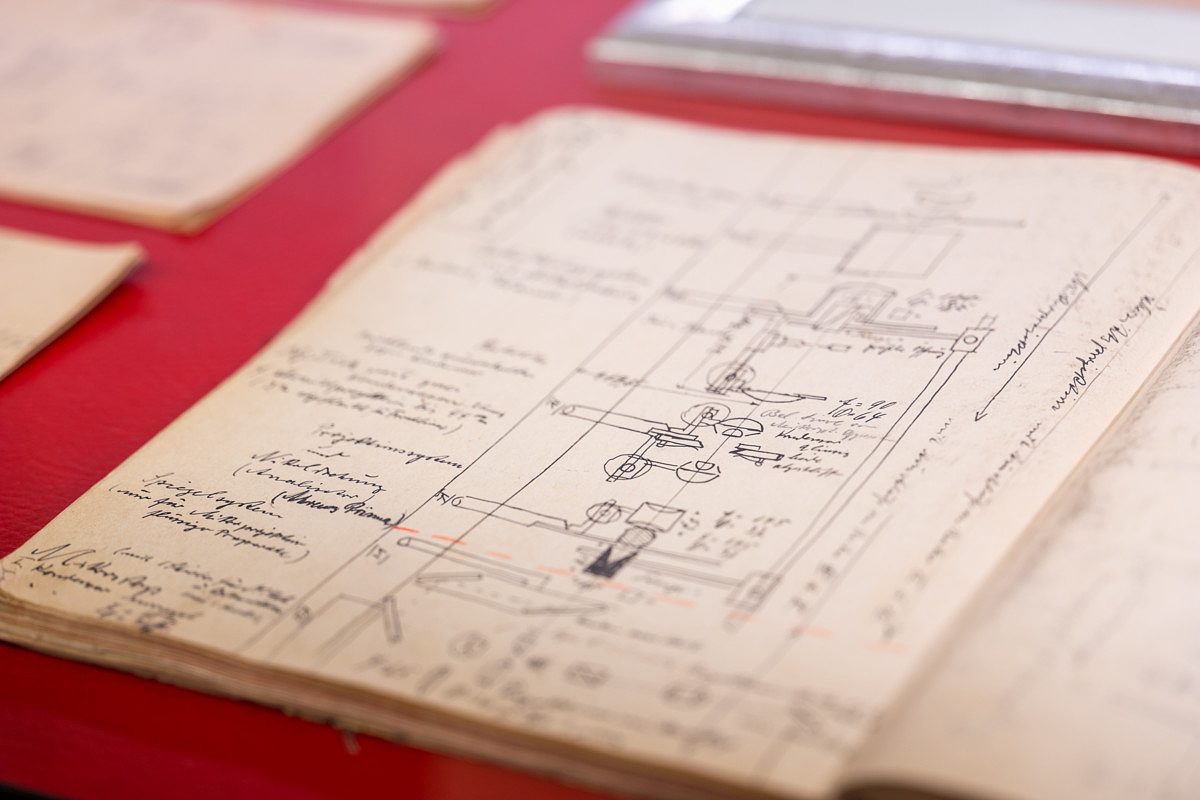
By David Farkas, LeicaStore Miami
Up a back staircase and
through a few nondescript double doors, the Leica Company Archives house
valuable documents, patents, design sketches, books, photographs, production
records, prototype cameras, and more. We took a tour of the Archives, which is
located on the second floor of the New Building. Even seeing just the tip of
the iceberg, we came away duly impressed.
Records Room
First on our tour was the
records room. Here, documents of all sorts were stored in large moveable metal
shelving units and more classic file drawers.
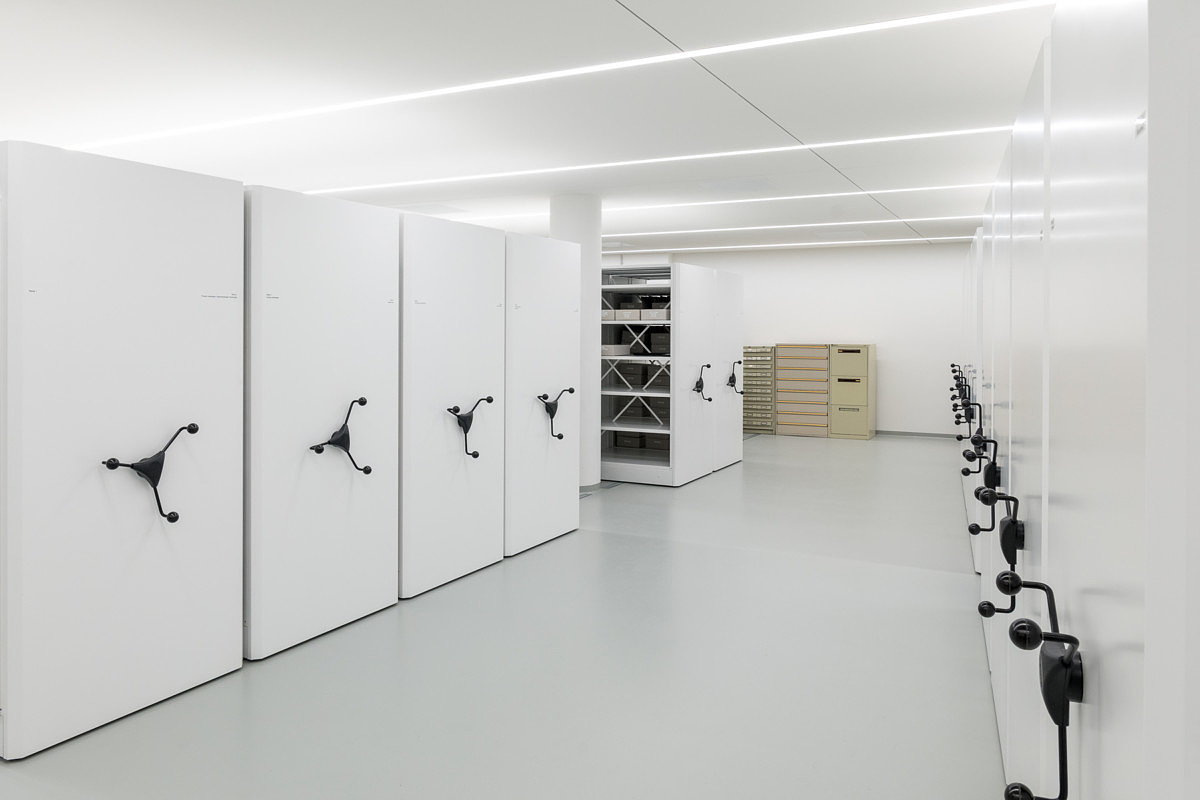
Lots of records, with room
to grow
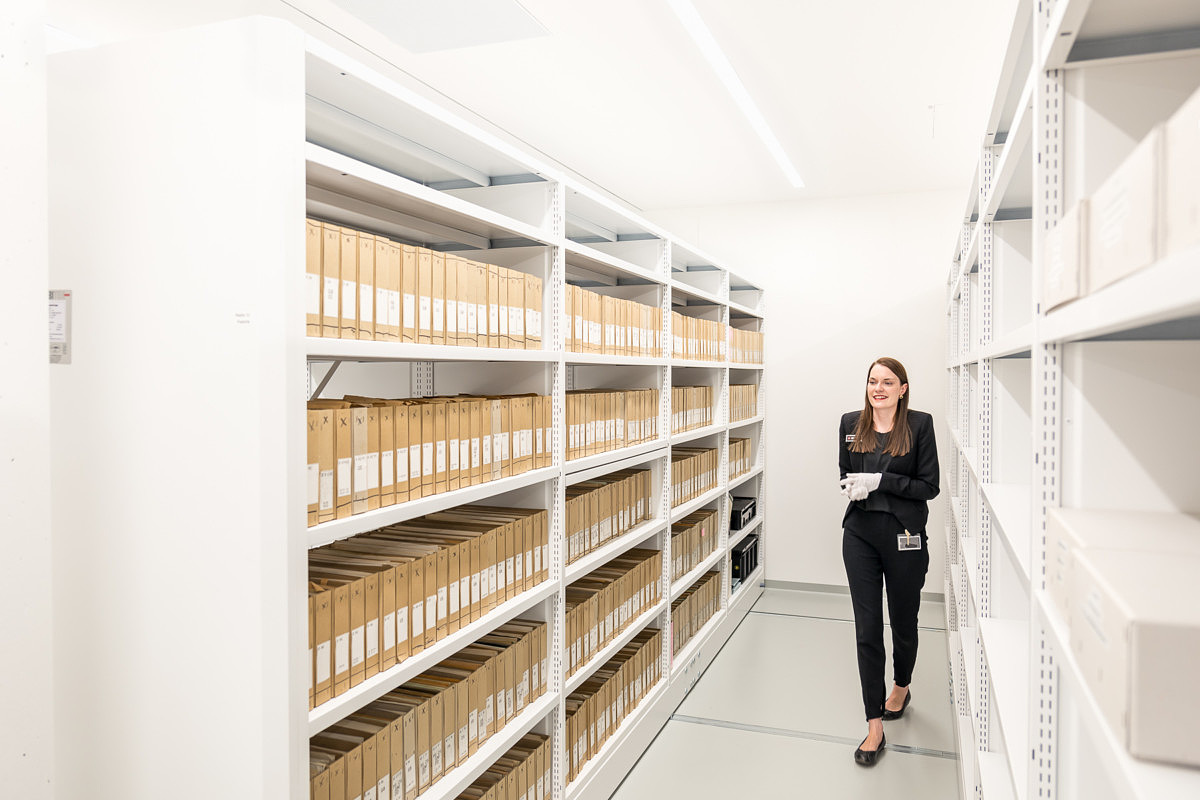
An entire section with
Leica patent records
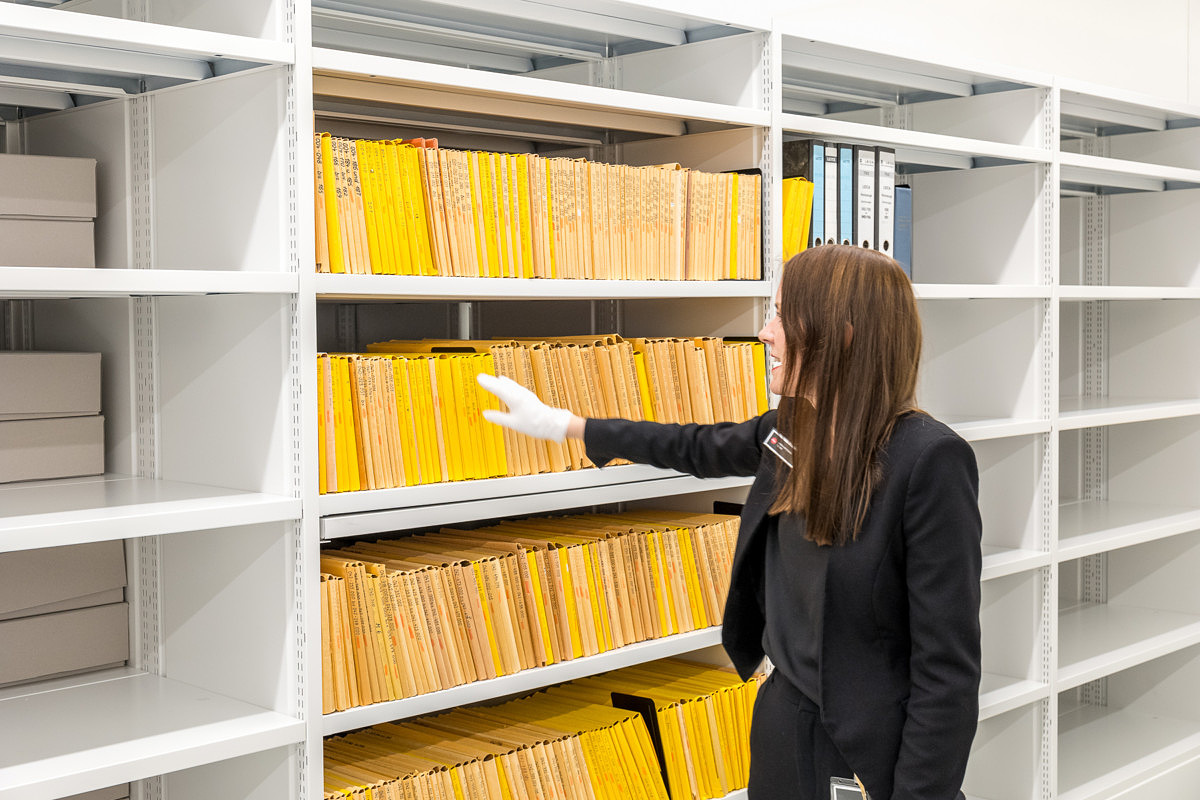
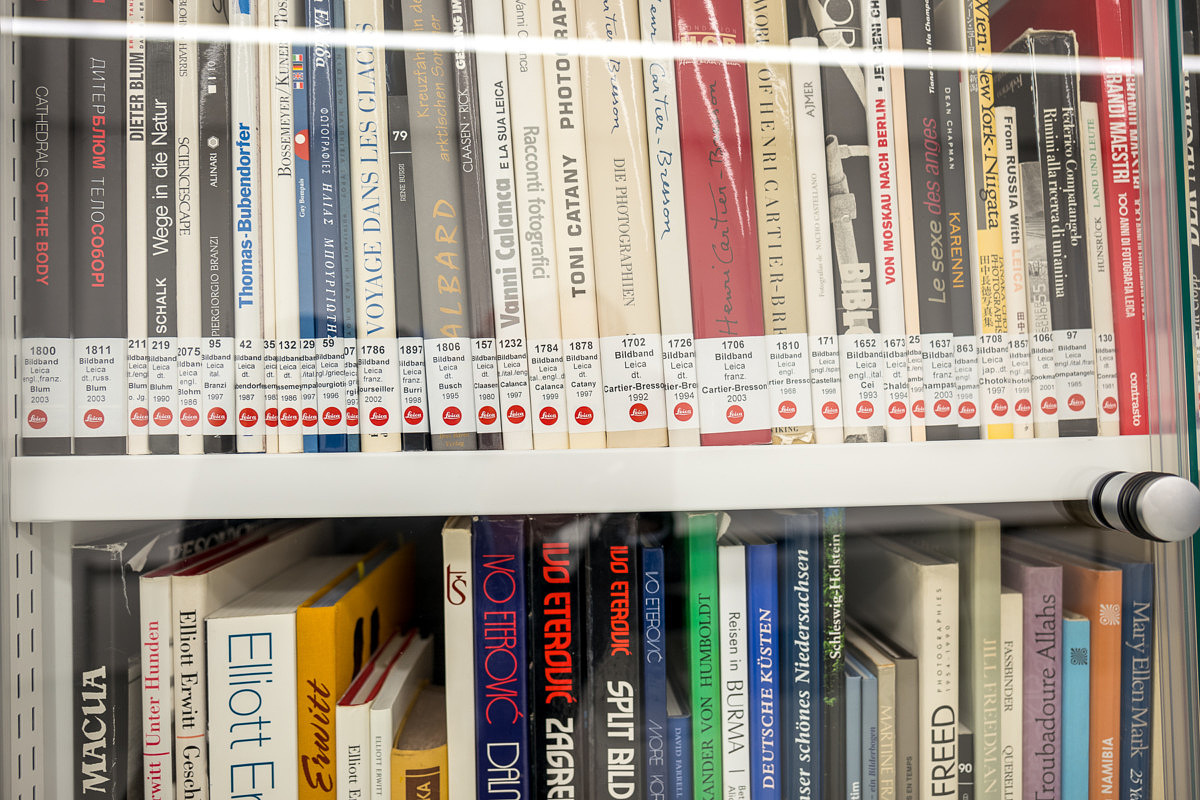
Collection of Leica
photography books
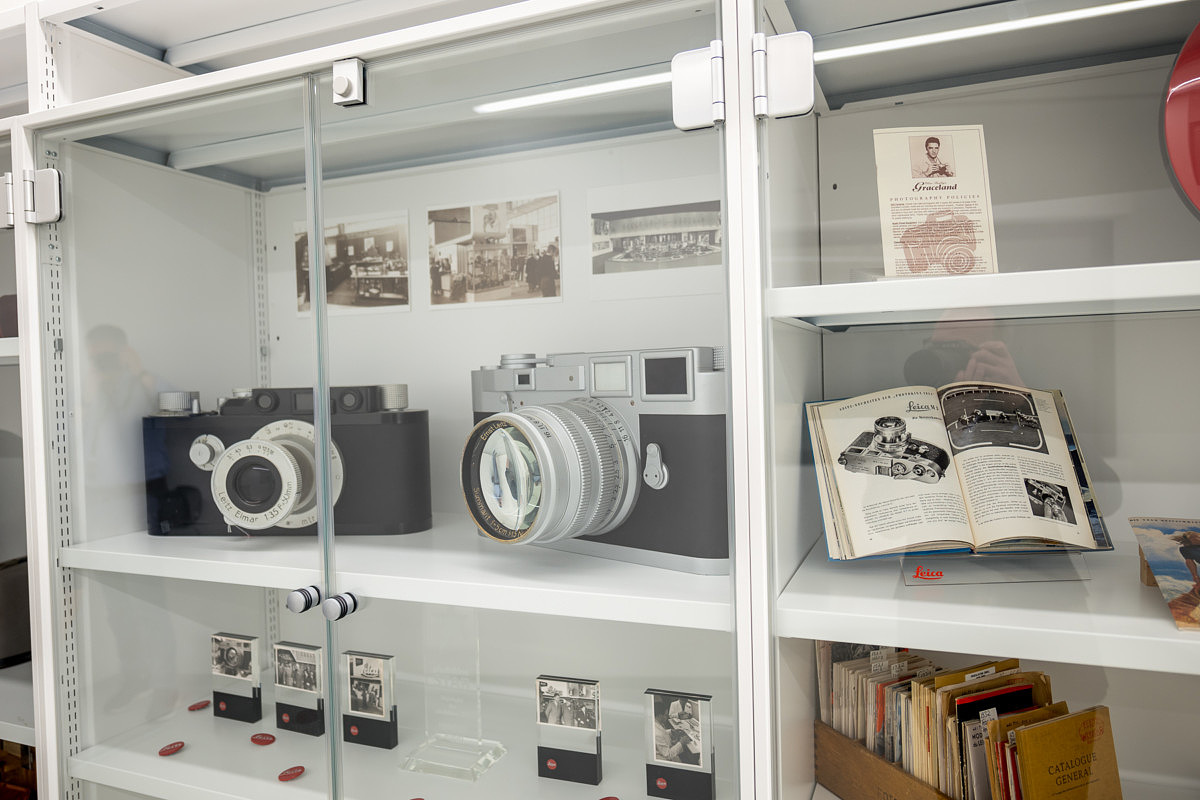
Dealer and trade show
display model cameras and promo items
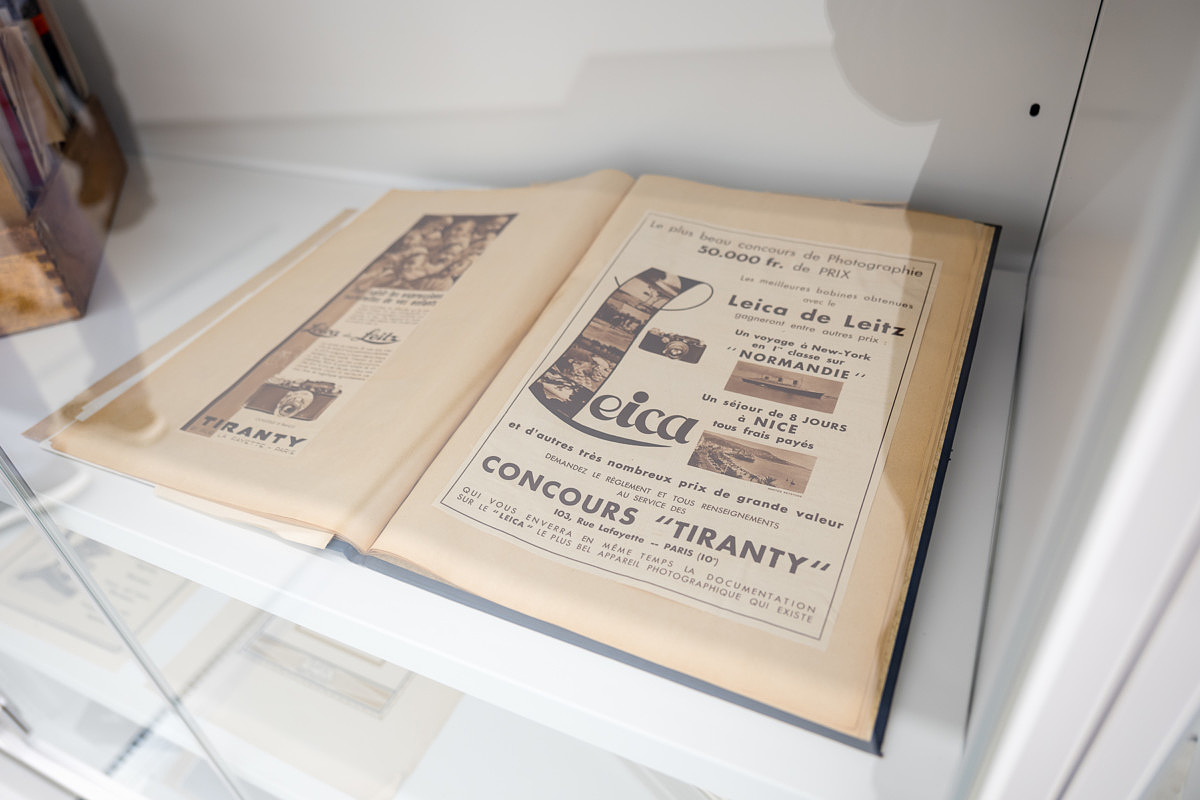
A book of old
advertisements
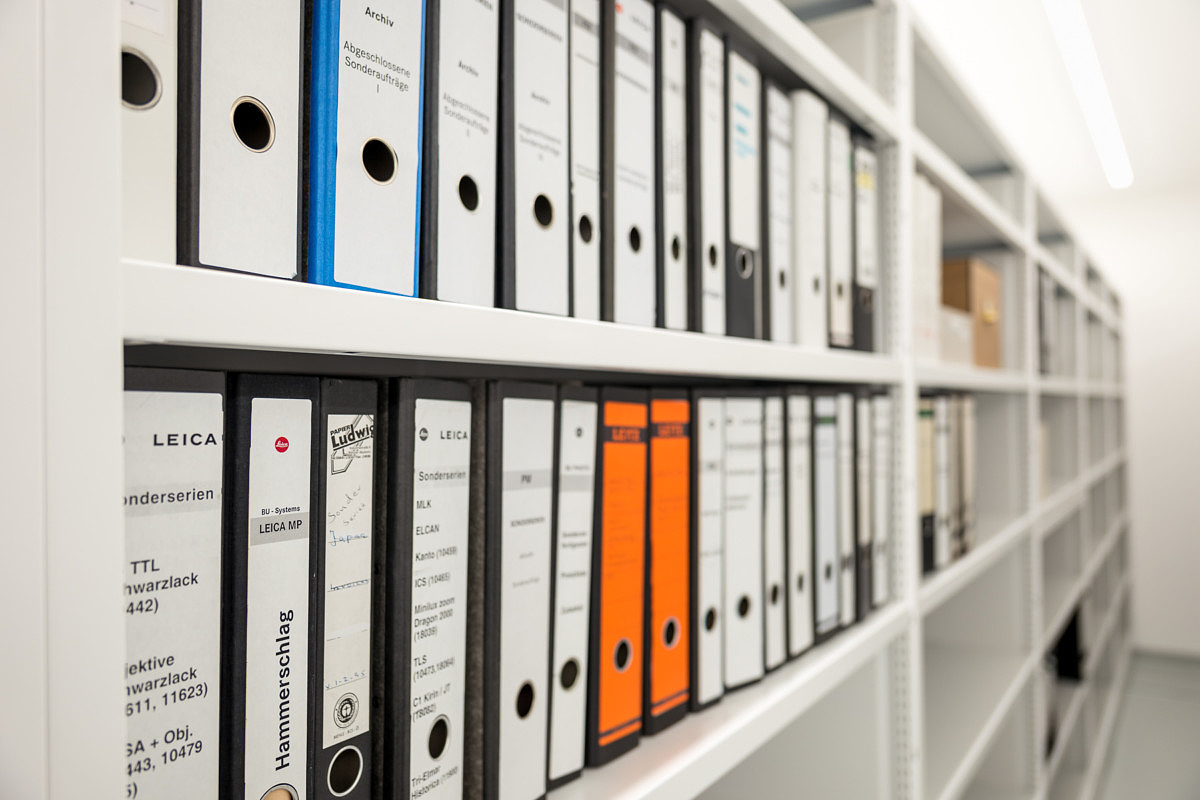
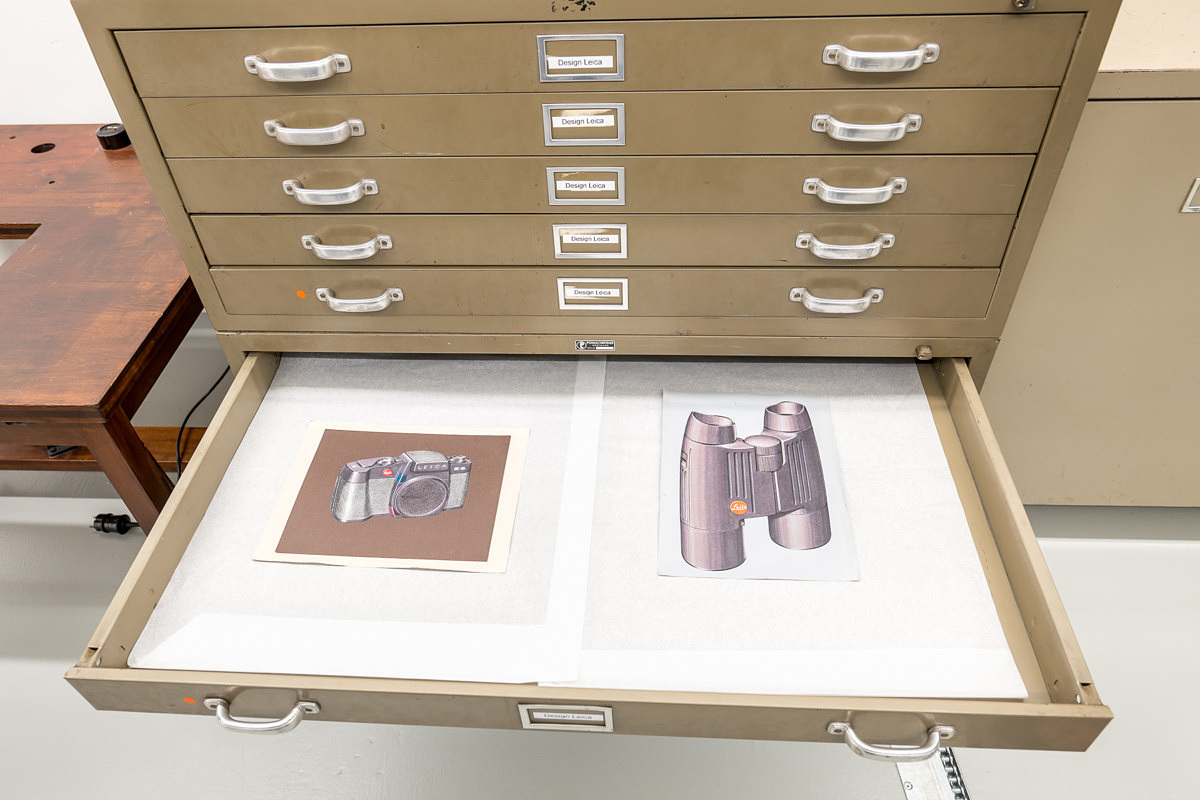
Hand drawn 3D product
renderings
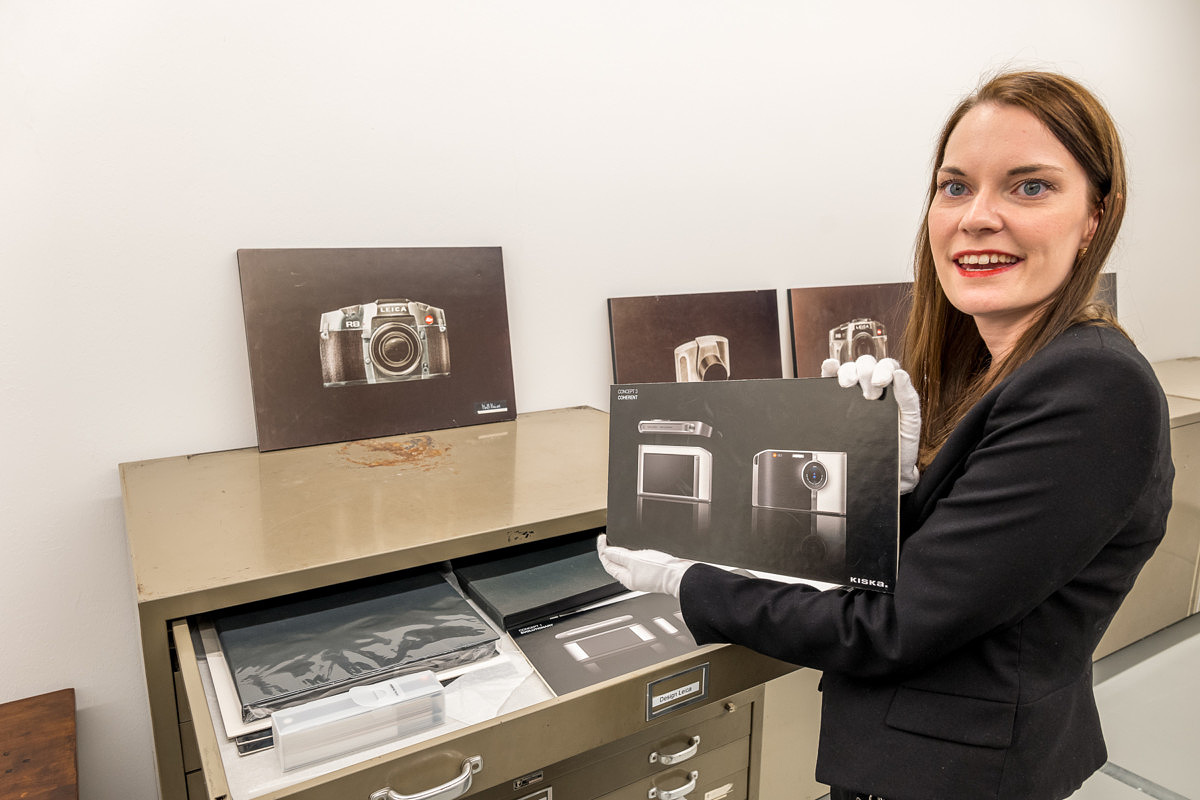
Renderings for concept
cameras that were never developed
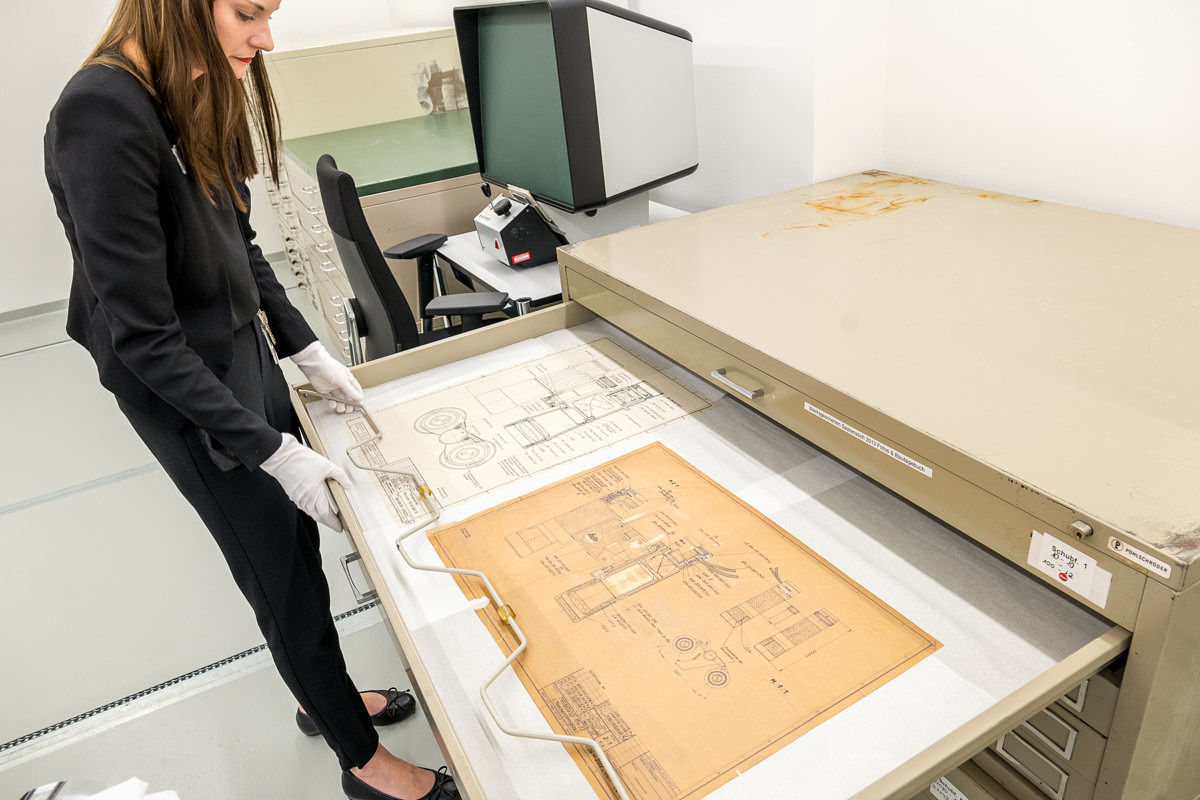
Binocular schematics
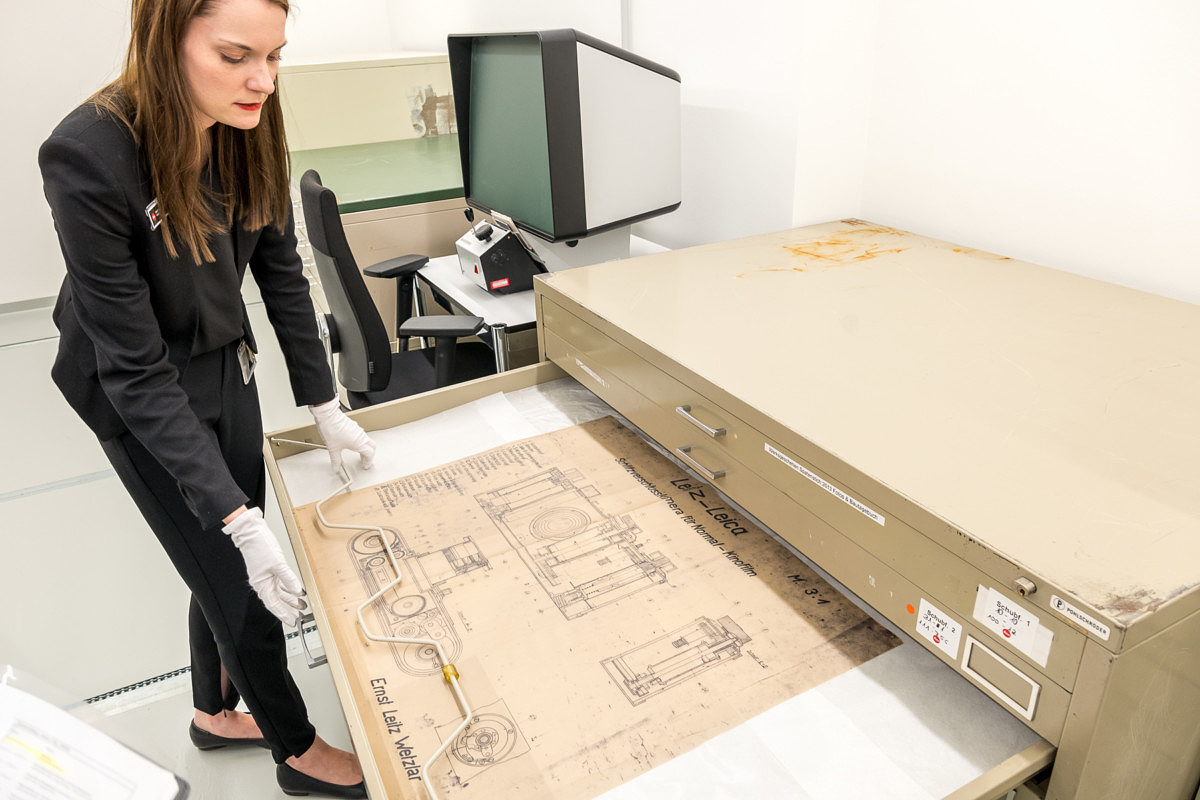
Original screwmount camera
schematics from 1929
Museum
The next stop on the tour
was more of mini museum, with several glass display cases. On offer were some
significant historical pieces, like a camera and lens from the Hindenburg, the
Jony Ive designed camera for (RED) which sold for $1.8 million, Oskar Barnack’s
original notes and sketches, contact sheets from the first roll of film ever
shot, production records, and some prototyping models for various cameras.
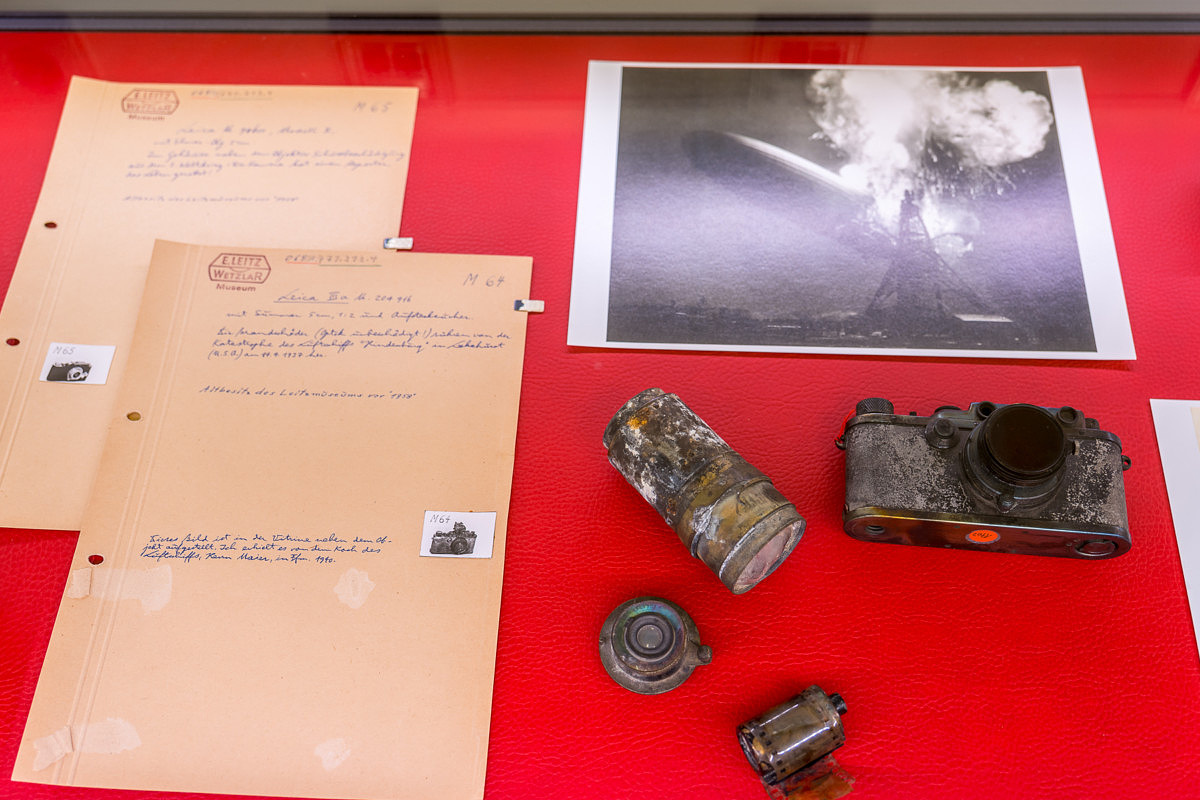
Camera and lenses from
Hindenburg
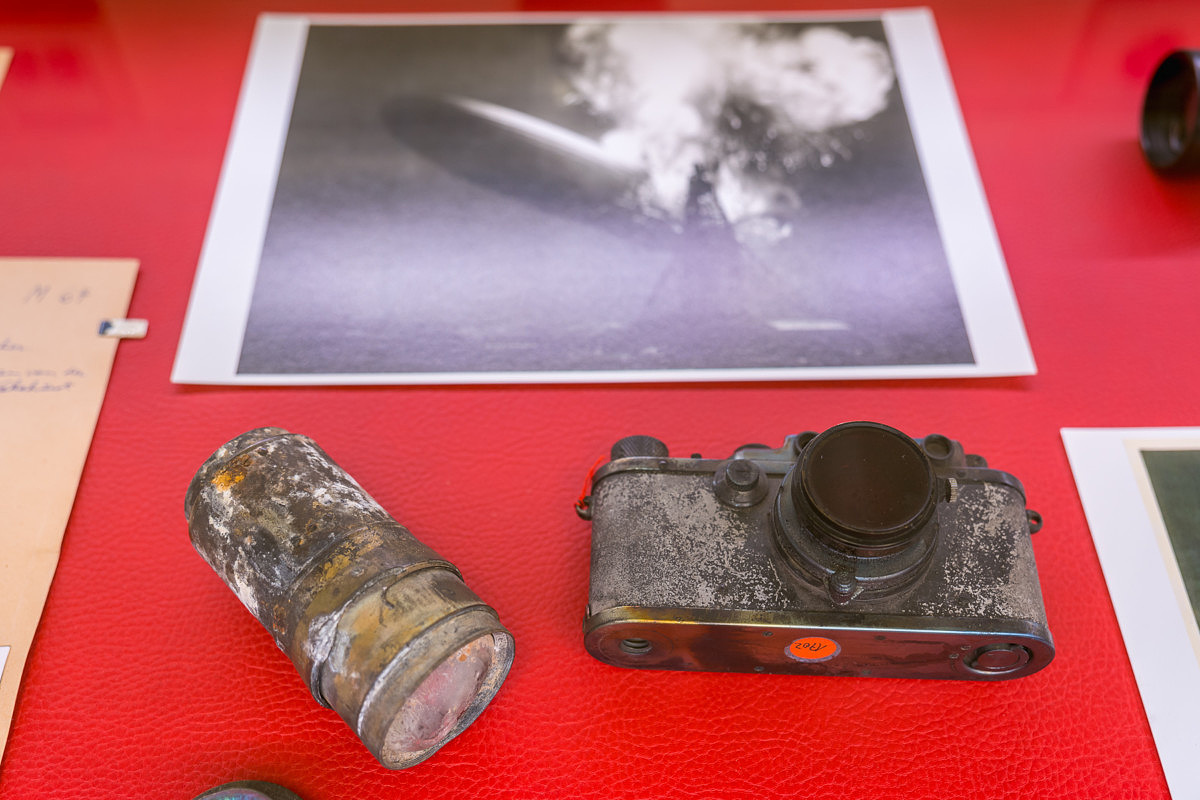
Camera and lenses from
Hindenburg
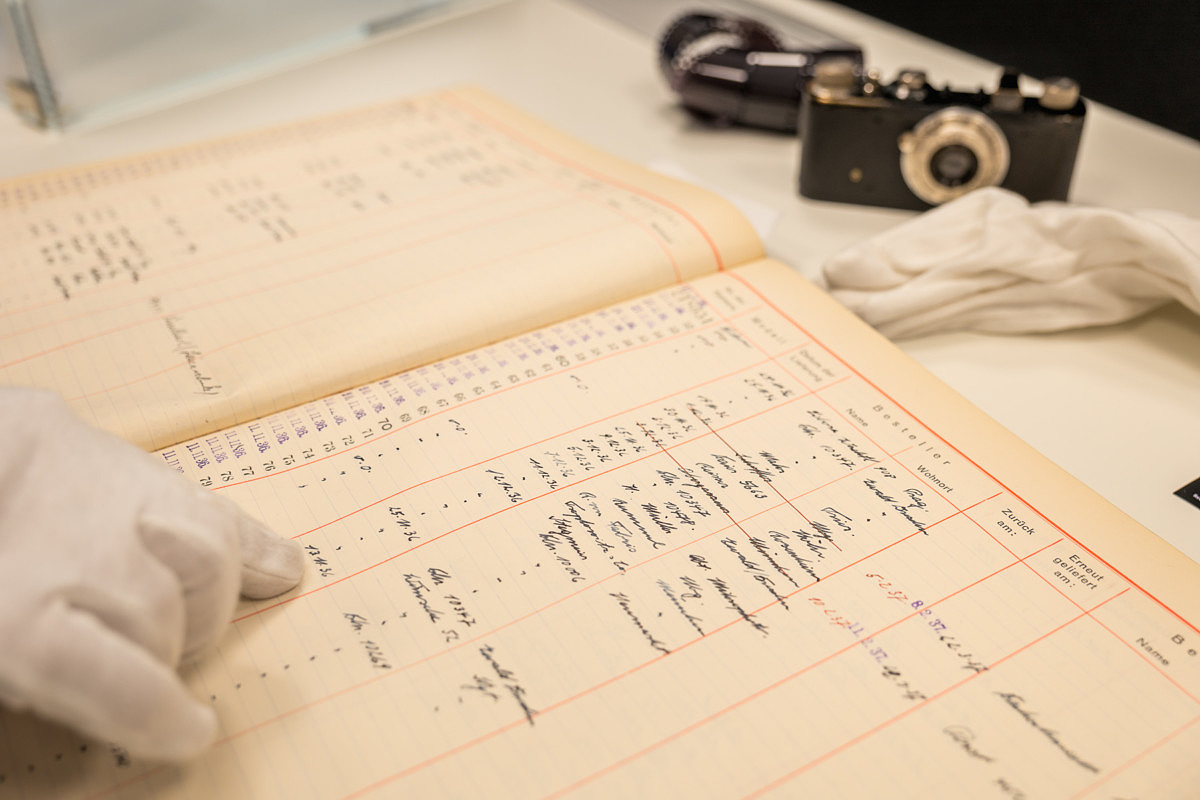
Detailed production
records
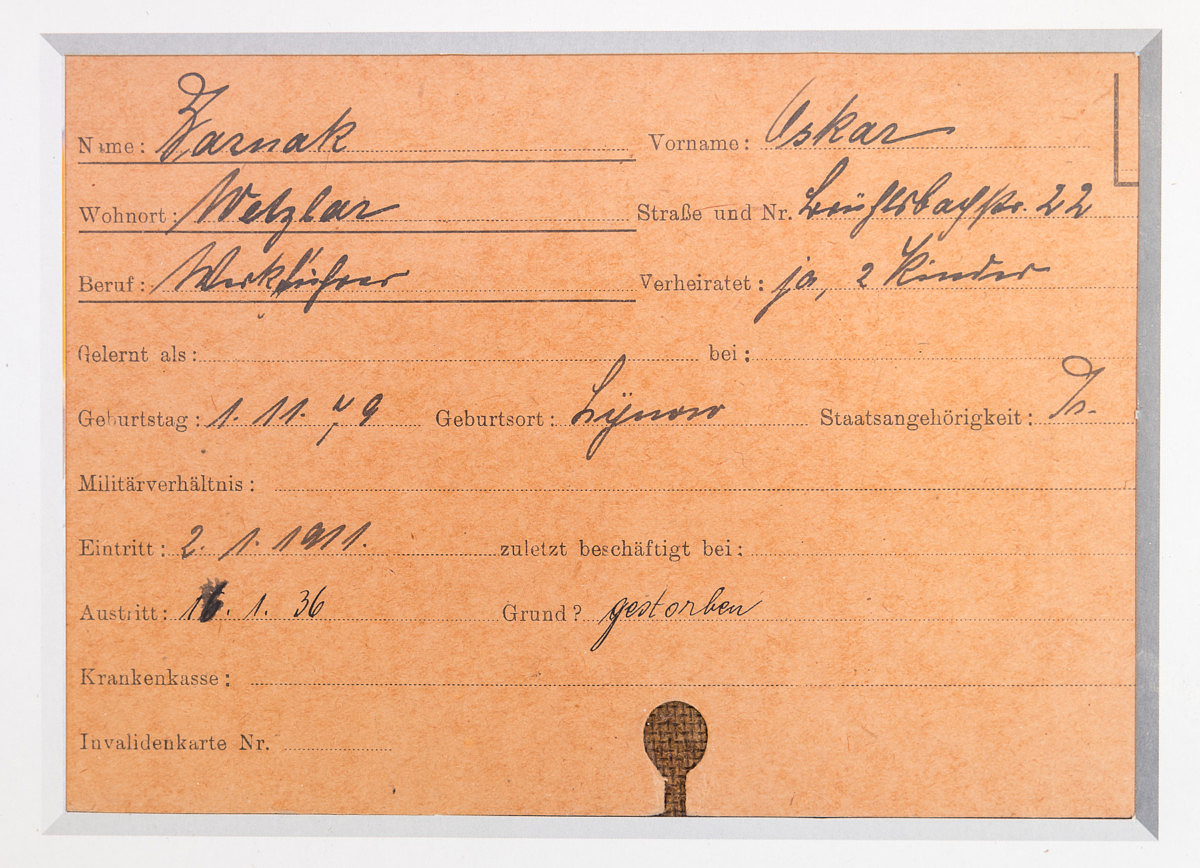
Oskar Barnack’s original
employee ID card
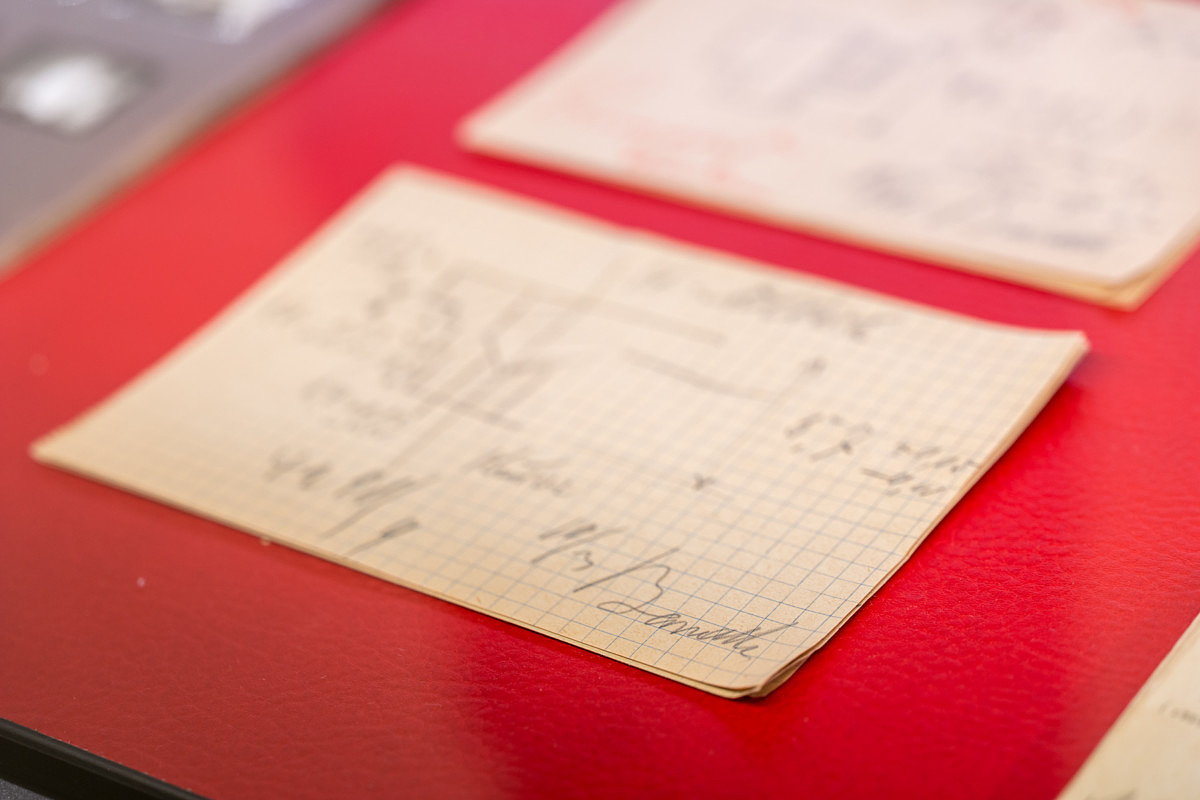
Oskar Barnack design
sketches
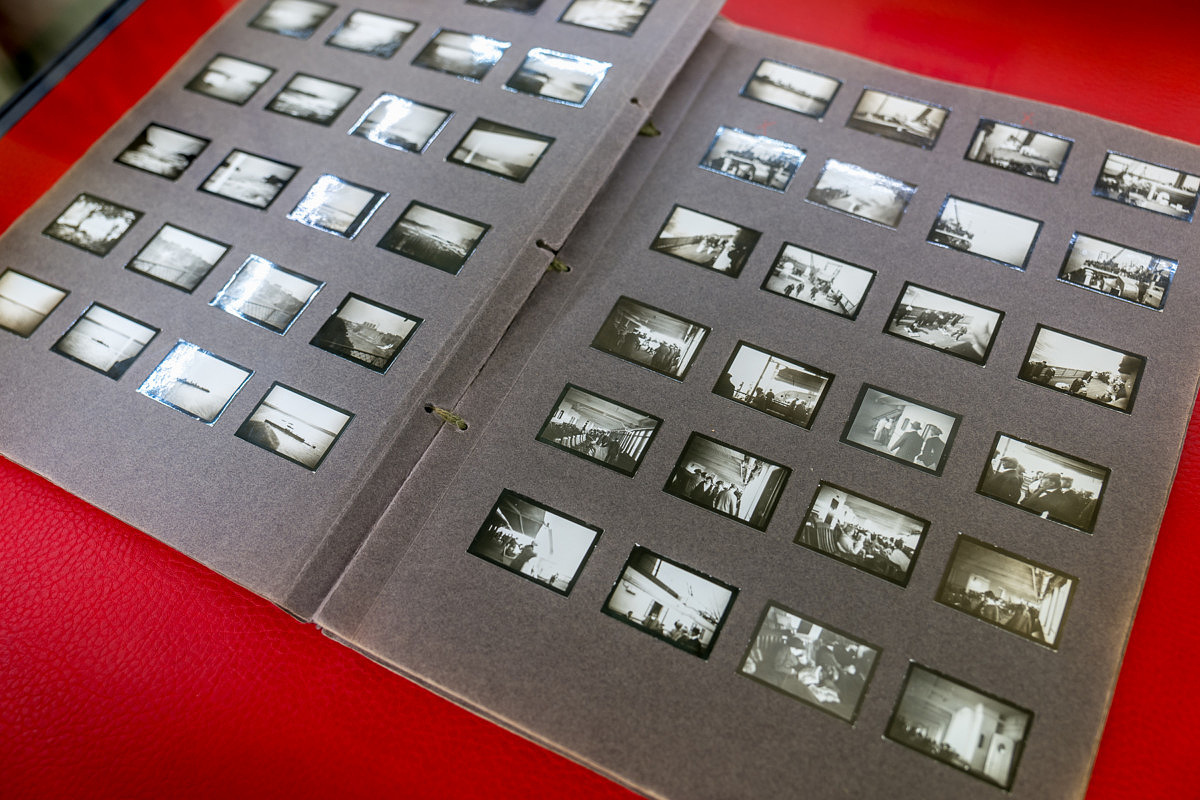
The first ever roll of
film shot with a Leica camera, by Oskar Barnack
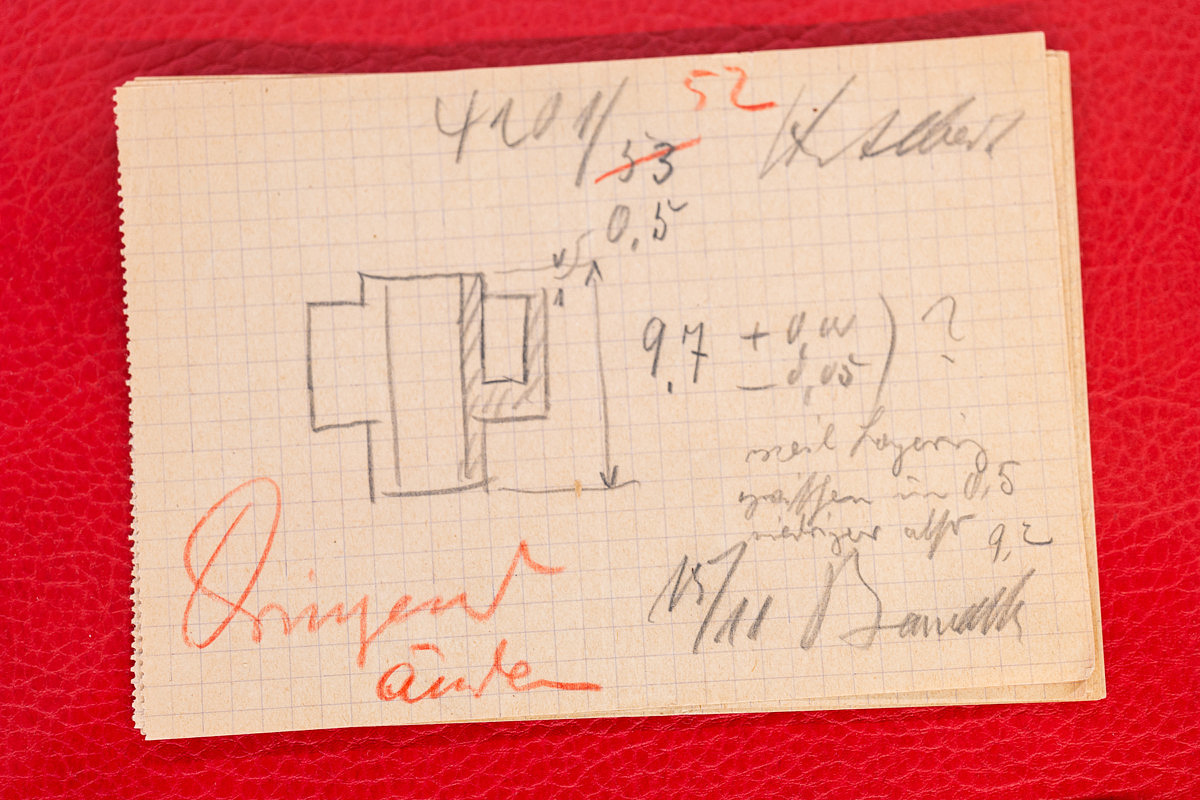
Notes by Oskar Barnack
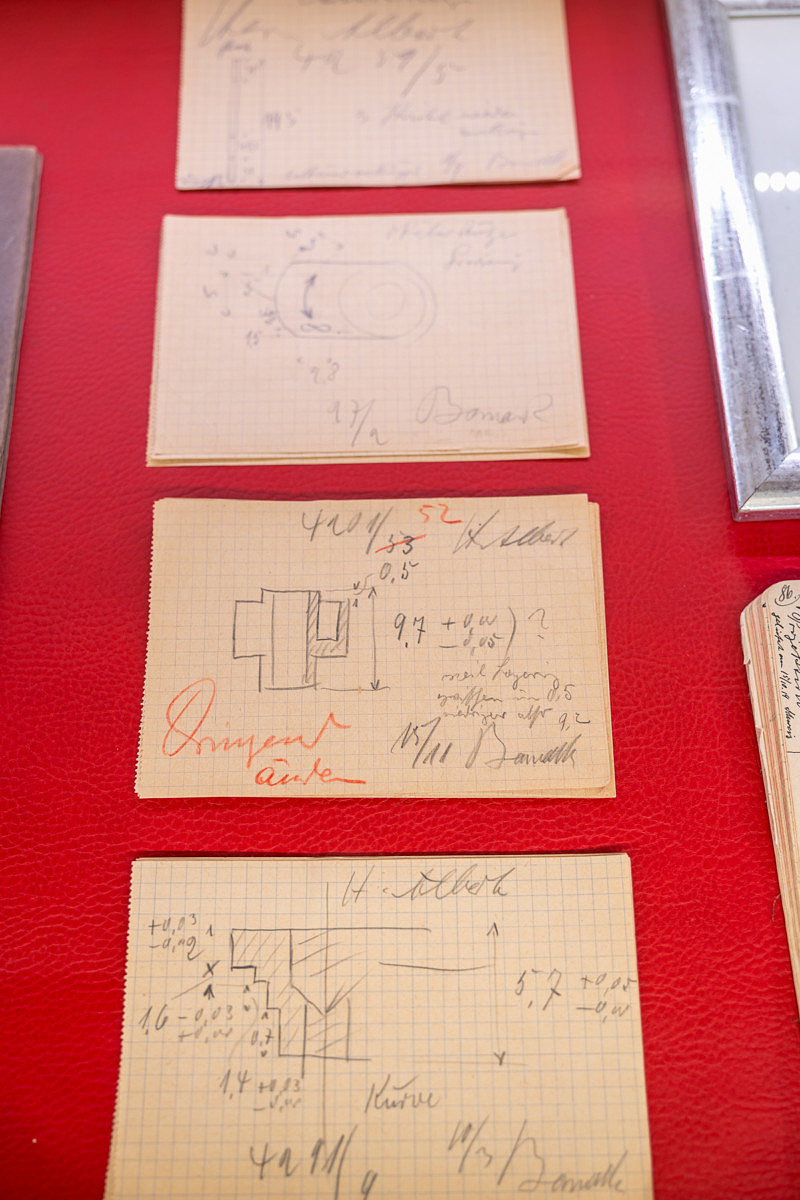
Oskar Barnack design
sketches

More Oskar Barnack design
sketches
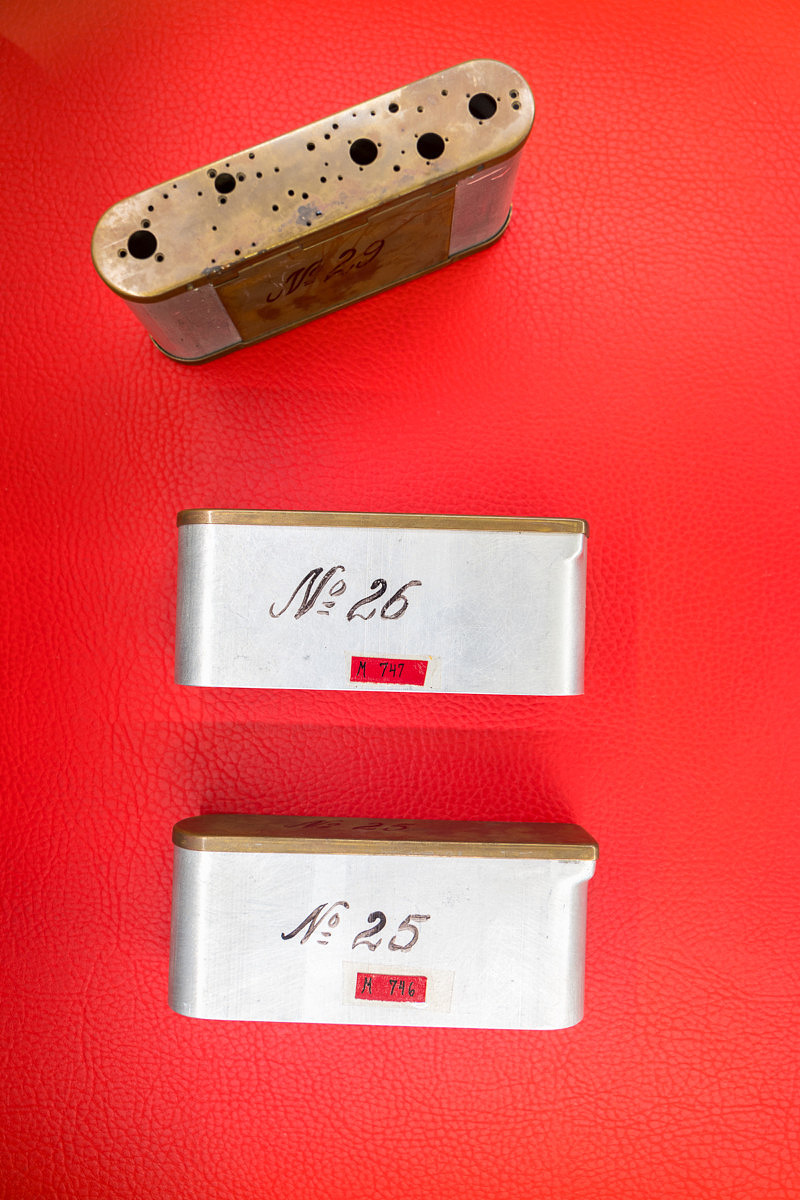
Old school prototyping
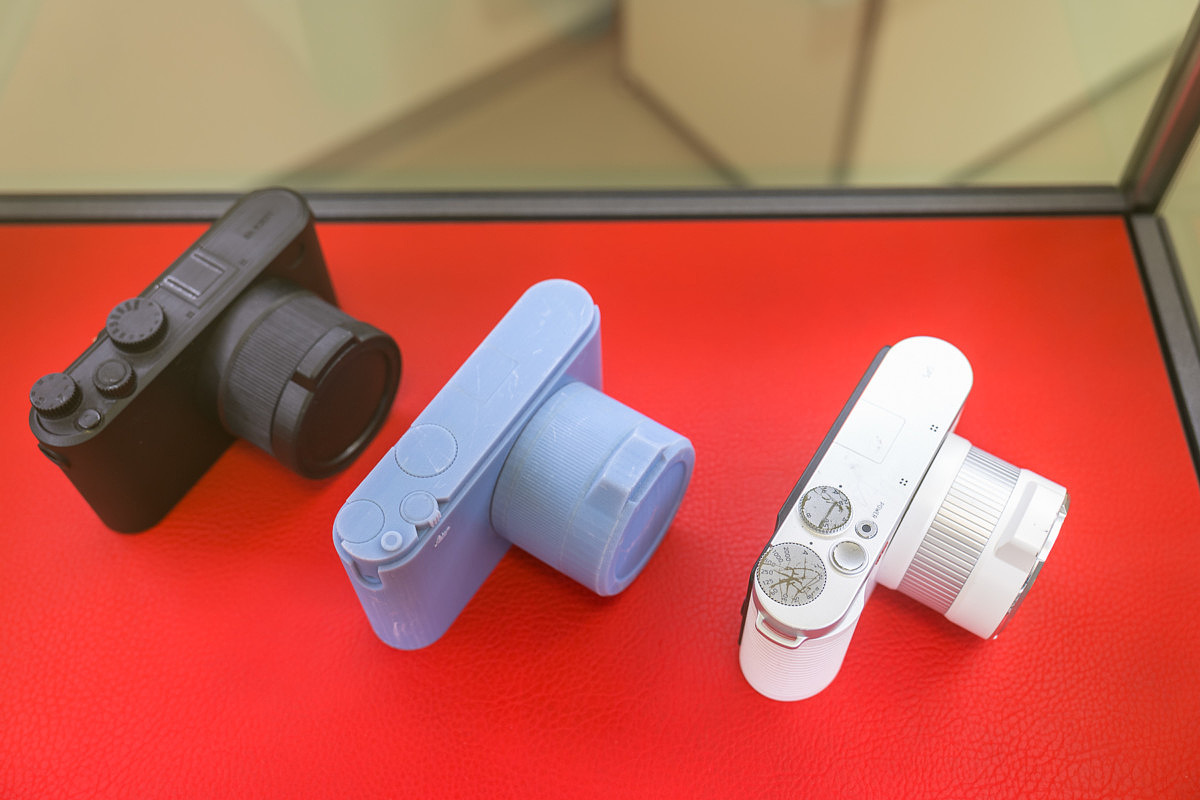
New school 3D printed
prototyping, here for the X-U
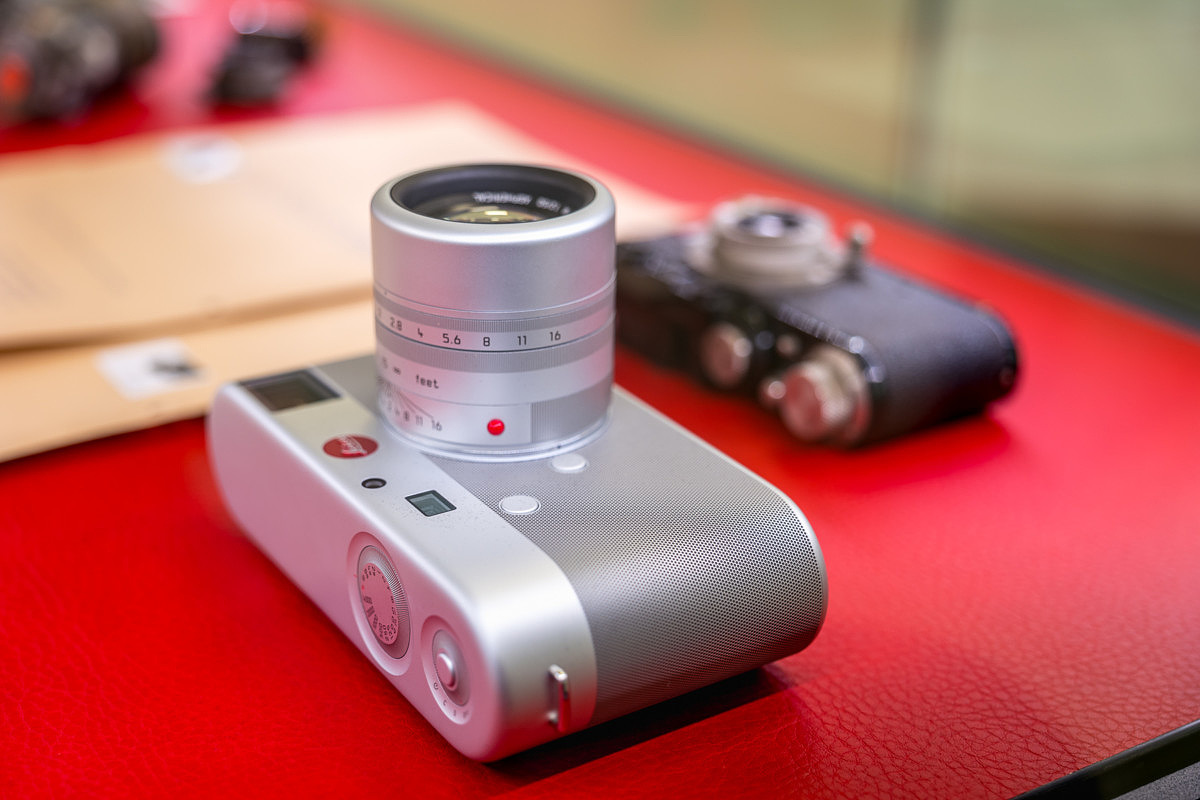
Jony Ive (Apple’s head of
design) designed M for (RED) camera
The Camera Vault
For the third and final
stop on the tour, our guide led us through another set of double doors and into
the crown jewel of the Archive – the camera vault. This large room, about the
same size as the records room, had row after row of metal shelving, with almost
every spot occupied by storage bins, each labeled with a product name or two.
Our guide removed one of the bins and opened it. Inside was about a dozen
cameras of that type.
Sadly, no pictures were
allowed in there, so you’ll just have to imagine what a Leica collection with
thousands of cameras and lenses looks like.
The Future
Leica plans to make the
archive available to the public in the future. In the meantime, a team of
full-time archivists keep the growing collection preserved for future generations.
Leica created the first 35mm still camera over 100 years ago. In that time, the
company has had an enormous impact on photography. Clearly, the company
understands the importance of maintaining and curating this history.
For other articles on this blog please click on Blog Archive in the column to the right
To comment or to read comments please scroll past the ads below.
All ads present items of interest to Leica owners.
__________________________________________________________________________
For other articles on this blog please click on Blog Archive in the column to the right
To comment or to read comments please scroll past the ads below.
All ads present items of interest to Leica owners.
__________________________________________________________________________

Buy vintage Leica cameras from
America's premier Leica specialist
http://www.tamarkinauctions.com/ http://www.tamarkin.com/leicagallery/upcoming-show

Buy vintage Leica cameras from
America's premier Leica specialist
http://www.tamarkinauctions.com/ http://www.tamarkin.com/leicagallery/upcoming-show
Click on image to enlarge
Order: info@gmpphoto.com
Please make payment via PayPal to GMP Photography
Click on image to enlarge
Order: info@gmpphoto.com
Click on image to enlarge
Order: info@gmpphoto.com
Click on image to enlarge
Order: info@gmpphoto.com
Please make payment via PayPal to GMP Photography
Click on image to enlarge
Order: info@gmpphoto.com
Please make payment via PayPal to GMP Photography
Click on image to enlarge
Order: info@gmpphoto.com
Please make payment via PayPal to GMP Photography






















